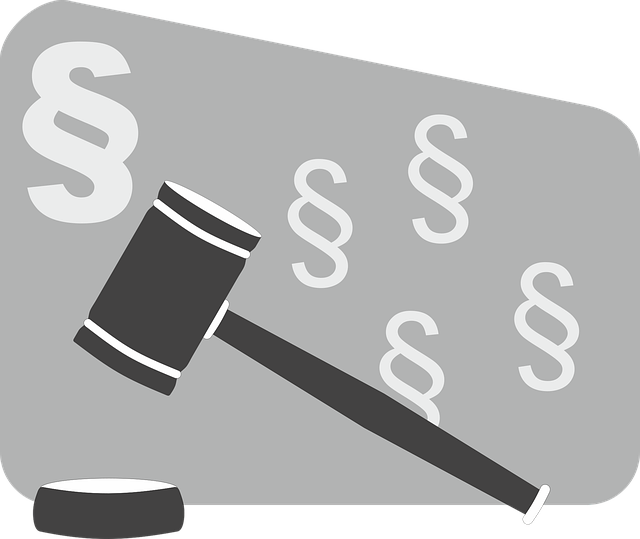Securities class actions, a critical aspect of civil law, empower investors to hold companies accountable for fraudulent or illegal securities activities, as seen in recent high-profile lawsuits. These actions, stemming from misconduct like stock manipulation and accounting fraud, have led to substantial financial settlements and set precedents across various industries. The evolving landscape reflects a growing push for accountability regarding anti-competitive practices, data privacy violations, environmental impacts, and systemic failures. By learning from these cases, policymakers aim to strengthen investor protection, drive corporate governance reforms, and prevent future economic crimes through enhanced regulations and ethical business cultures.
- Understanding Securities Class Actions: A Legal Framework
- Notable Recent Cases: Uncovering Common Themes
- The Impact and Implications on Investors and Businesses
- Navigating the Future: Reforms and Prevention Strategies
Understanding Securities Class Actions: A Legal Framework

Securities Class Actions are a significant aspect of civil law, providing a legal framework for investors to seek collective redress against companies and individuals who have engaged in fraudulent or illegal activities related to securities. These cases often arise from allegations of misconduct such as stock manipulation, accounting fraud, or failure to disclose material information. In recent years, high-stakes class action lawsuits have gained prominence, with investors seeking substantial damages to compensate for financial losses suffered due to corporate malfeasance.
Understanding the legal framework behind these actions is crucial when navigating complex cases that often involve intricate financial details and voluminous evidence. Recent Class Action Lawsuits in Civil Law highlight the importance of robust legal strategies, meticulous documentation, and expert testimony. Winning challenging defense verdicts in high-stakes cases requires a deep understanding of both securities regulations and civil procedure, as well as the ability to present compelling arguments and counter-evidence during jury trials.
Notable Recent Cases: Uncovering Common Themes

In recent years, several high-profile recent class action lawsuits in civil law have brought to light recurring themes and trends across different industries. These cases span various sectors, from tech giants to financial institutions, illustrating a broader pattern of alleged misconduct that has prompted widespread public scrutiny. For instance, the consolidation of power among dominant players has raised concerns about anti-competitive practices, leading to lawsuits focused on market manipulation and data privacy violations.
Moreover, environmental issues have emerged as a prominent concern, with corporate and individual clients facing legal repercussions for their roles in contributing to climate change. Other notable cases involve allegations of discriminatory hiring practices, misappropriation of intellectual property, and systematic failures in product safety. These developments underscore the evolving landscape of class action litigation, where plaintiffs seek justice not only for financial losses but also for broader societal impacts.
The Impact and Implications on Investors and Businesses

Recent Class action lawsuits in civil law have had a profound impact on both investors and businesses across the country. These collective legal actions, often driven by high-profile cases, can result in significant financial settlements for victims, achieving extraordinary results in holding wrongdoers accountable. The implications extend beyond monetary compensation; they set precedents that shape future business practices, enhancing transparency and corporate governance.
For investors, successful class action lawsuits provide a mechanism to recover losses incurred due to fraudulent or negligent activities. Businesses, on the other hand, face the challenge of avoiding indictment and potential ruin by implementing stricter compliance measures and improving internal controls. The ripple effects of these cases create a more robust legal landscape, encouraging companies to prioritize ethical conduct and responsible disclosure to prevent similar future lawsuits.
Navigating the Future: Reforms and Prevention Strategies

Navigating the Future: Reforms and Prevention Strategies
The landscape of securities class actions is constantly evolving, driven by recent high-profile cases such as those involving major tech companies and financial institutions. These prominent lawsuits have sparked a reevaluation of regulatory frameworks aimed at preventing future misdeeds. In response to the escalating complexity and impact of white-collar and economic crimes, legal reforms are being implemented to strengthen oversight and protect investors. One notable trend is the increased scrutiny on corporate governance practices, with an emphasis on transparency and accountability. These changes reflect a broader push towards holding companies and their leaders accountable for misconduct, particularly in the realm of civil law.
Furthermore, prevention strategies are gaining traction, focusing not only on enhancing regulatory tools but also on fostering ethical business cultures. By prioritizing general criminal defense measures and promoting compliance programs within organizations, regulators hope to deter potential wrongdoings. The ongoing dialogue between legal experts, corporate leaders, and policymakers underscores a collective effort to forge a more robust and fair securities market. This proactive approach, rooted in lessons learned from recent class action lawsuits, seeks to ensure that investors’ rights are safeguarded and that the financial sector operates with integrity.
Securities class actions, as demonstrated by recent civil law cases, highlight the intricate balance between investor protection and business operations. By examining notable instances, we uncover recurring themes that shape legal frameworks and impact both investors and businesses. Looking ahead, navigating the future of securities litigation requires proactive reforms and prevention strategies to ensure fair practices while fostering economic growth. Understanding these dynamics is crucial for all stakeholders involved in the dynamic landscape of class action lawsuits.






